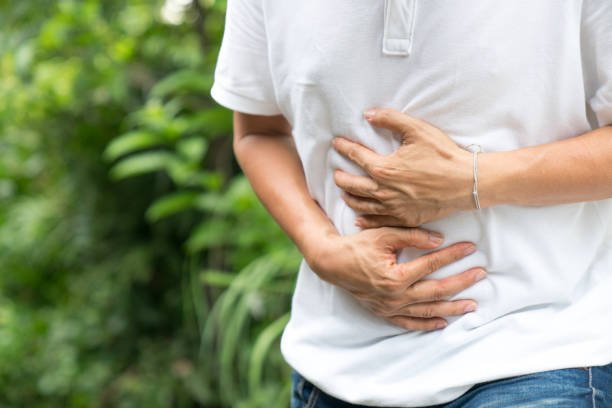Diarrhea is a common digestive issue that affects people of all ages. Whether it’s a mild inconvenience or a severe condition, understanding how to treat it effectively is crucial. This guide will walk you through the causes, symptoms, and most importantly, the remedies to cure diarrhea.
What is Diarrhea?
Diarrhea is characterized by loose, watery stools that occur more frequently than usual. It can be acute, lasting for a few days, or chronic, persisting for weeks. While diarrhea is often harmless, it can lead to dehydration, especially in children and the elderly, making it essential to address promptly. Nitazoxanide 500 mg can treat diarrhea.
Causes of Diarrhea
Several factors can trigger diarrhea, including:
- Infections: Bacterial, viral, or parasitic infections are common causes. Contaminated food or water often carries these pathogens.
- Medications: Antibiotics, antacids, and other medications can disrupt the natural balance of bacteria in the gut, leading to diarrhea. While, nitazoxanide 200 mg will cure diarrhea.
- Food intolerances: Lactose intolerance and gluten sensitivity are examples of conditions that can cause diarrhea when certain foods are consumed.
- Digestive disorders: Conditions like Irritable Bowel Syndrome (IBS), Crohn’s disease, and ulcerative colitis often result in chronic loose motions.
- Stress and anxiety: Emotional stress can also trigger episodes of diarrhea.
Symptoms to Watch For
The primary symptom of diarrhea is frequent, loose, and watery stools. Other symptoms may include:
- Abdominal cramps
- Bloating
- Nausea and vomiting
- Fever
- Urgency to have a bowel movement
- Dehydration symptoms like dry mouth, fatigue, and dizziness
How to Cure Diarrhea
Treating diarrhea involves managing symptoms, staying hydrated, and addressing the underlying cause. Here are some effective remedies:
1. Stay Hydrated
The most crucial aspect of treating loose motions is preventing dehydration. Drink plenty of fluids such as water, oral rehydration solutions (ORS), clear broths, and electrolyte-rich drinks like sports drinks. Avoid caffeinated, alcoholic, and sugary beverages, as they can worsen dehydration.
2. Eat a BRAT Diet
The BRAT diet (Bananas, Rice, Applesauce, Toast) is gentle on the stomach and can help firm up stools. These foods are low in fiber, which helps reduce stool frequency.
3. Use Probiotics
Probiotics are beneficial bacteria that can help restore the natural balance of the gut flora. Yogurt with live cultures, kefir, and probiotic supplements can be beneficial during and after a bout of loose motions.
4. Avoid Certain Foods
Steer clear of fatty, greasy, and spicy foods as they can irritate the digestive system. Dairy products, high-fiber foods, and artificial sweeteners may also exacerbate symptoms.
5. Over-the-Counter Medications
Anti-diarrheal medications like loperamide (Imodium) can slow down bowel movements, but they should be used with caution. If an infection is the cause, it’s often best to let the body flush out the pathogens naturally.
6. Herbal Remedies
Some herbal remedies, like ginger tea, peppermint tea, and chamomile, can soothe the digestive tract and alleviate loose motions symptoms.
7. Consult a Doctor
If diarrhea persists for more than two days in adults or 24 hours in children, or if it is accompanied by high fever, severe pain, or signs of dehydration, seek medical attention. Loose motions may require treatment for an underlying condition, such as IBS or Crohn’s disease.
When to Use Medication?
“Over-the-counter anti-diarrheal medications can be helpful, but they should be used with caution,” advises Dr. Hughes. “These medications can provide relief by slowing down bowel movements, but they may not be suitable for everyone. If the diarrhea is caused by an infection, it’s important to allow the body to expel the pathogen. In such cases, medication might prolong the illness. Always consult with a healthcare provider before taking any medication, especially for chronic or severe diarrhea.”
When to Seek Medical Help?
“Most cases of diarrhea resolve on their own within a few days,” notes Dr. Hughes. “However, if the symptoms persist beyond that, or if there’s blood in the stool, severe pain, or signs of dehydration like dizziness or confusion, it’s crucial to seek medical attention. Chronic diarrhea could indicate a more serious underlying condition, such as inflammatory bowel disease, that requires specialized treatment.”
Preventing Diarrhea
Prevention is always better than cure. To reduce the risk of loose motions:
- Practice good hygiene, especially handwashing with soap and water.
- Ensure food is cooked thoroughly and avoid consuming food from questionable sources.
- Drink clean, filtered water and be cautious about ice cubes and unwashed fruits and vegetables, especially when traveling.
- Keep your stress levels in check through relaxation techniques like meditation, yoga, or deep breathing exercises.
Final Thoughts
Diarrhea, though uncomfortable, is typically manageable with proper care and attention. By staying hydrated, eating the right foods, and using appropriate remedies, you can alleviate symptoms and recover quickly. However, never hesitate to consult a healthcare professional if symptoms persist or worsen.
Remember, taking steps to prevent diarrhea is equally important as knowing how to treat it. Stay informed, stay prepared, and your digestive health will thank you.





Психоаналитик это психотерапевт практикующий психоанализ Психоаналитик и психолог разница 293
3 month hgh before and after
References:
how much hgh to take for bodybuilding (md.entropia.de)
anavar and dianabol cycle
References:
dianabol 10mg cycle (shenasname.ir)
hgh bodybuilding cycle
References:
how much hgh iu per day – museumtwist92.bravejournal.Net,
hgh testosterone cycle
References:
beginner hgh cycle (linksmy.Cc)
what is the function of steroids in the human body
References:
Dicks on Steroids (https://codes.tools.asitavsen.Com)
cjc 1295 with dac 2mg ipamorelin 2mg
References:
Ipamorelin Vs Ipamorelin Cjc 1295
cjc 1295 ipamorelin erectile dysfunction
References:
reconstitute ipamorelin
what are the benefits of cjc 1295 and ipamorelin
References:
best peptides for muscle building: ipamorelin (https://git.rpjosh.de/uvyina39837724)
cjc 1295 + ipamorelin dosage
References:
tesamorelin and ipamorelin benefits
ipamorelin benefits for women
References:
Side Effects Of Cjc Ipamorelin (https://Queeroid.Com/Forum/Member.Php?Action=Viewpro&Member=PorterBee)
buy sermorelin-ipamorelin-cjc1295
References:
dosage for cjc1295 ipamorelin (Lauren)
ipamorelin peptide therapy in ma
References:
cjc-1295 ipamorelin 5/5 dosage
steroids with least side effects
References:
Good Things About Steroids (Geekhosting.Company)
can i get big without steroids
References:
hesselberg-vega-3.technetbloggers.de